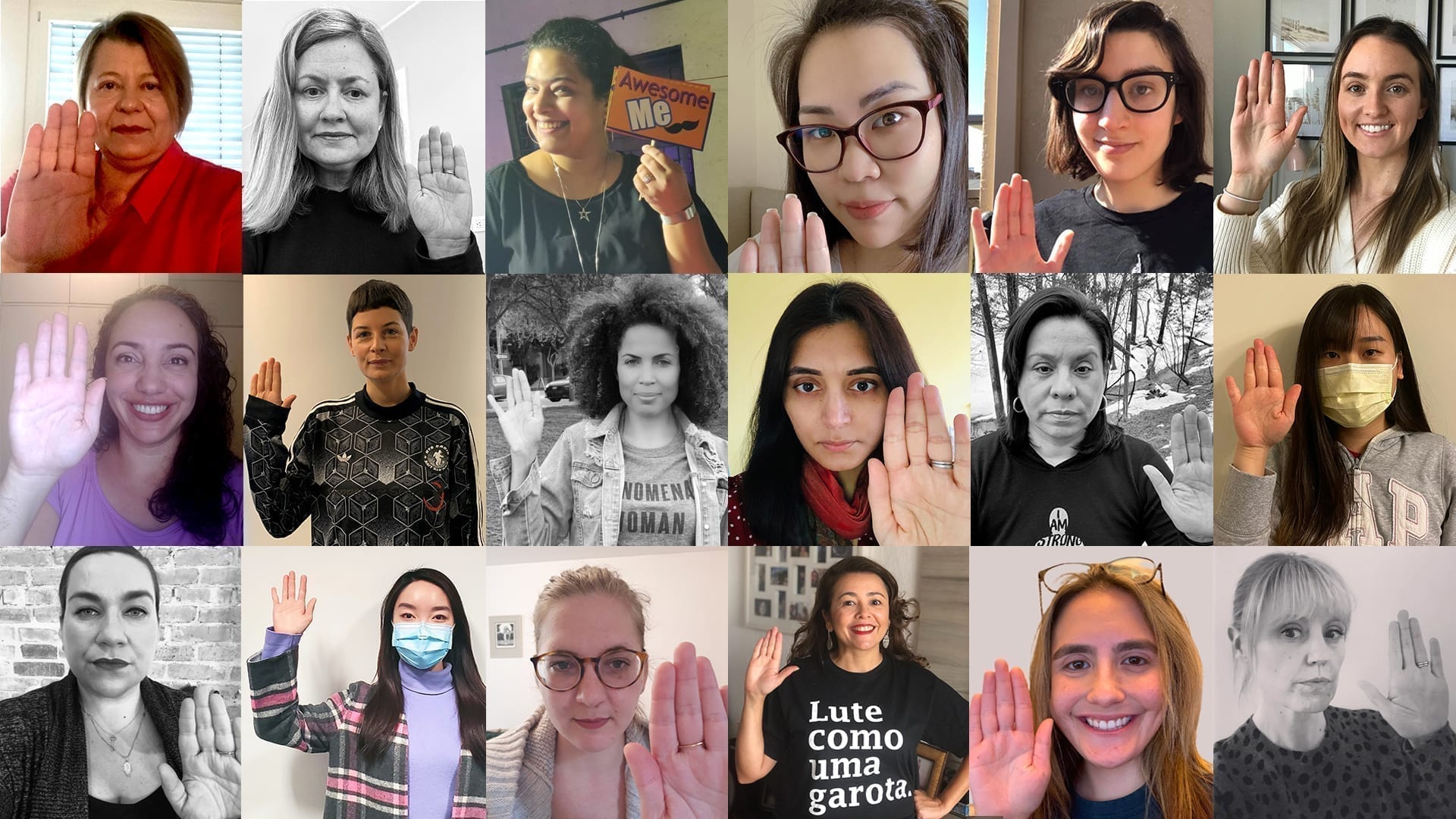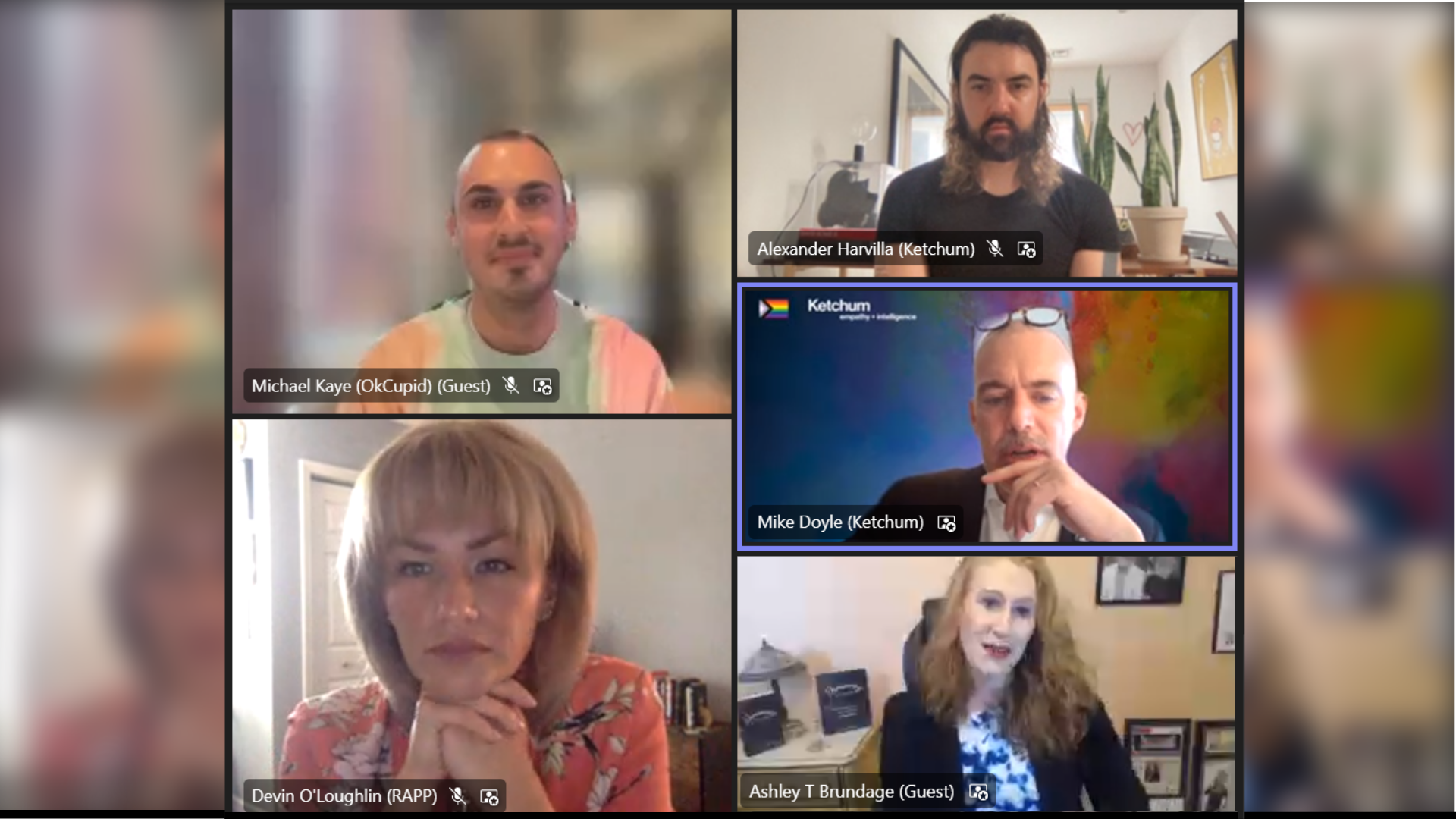International Women’s Day 2021 arrives in a world that feels fundamentally different from last year. In every corner of the globe, the COVID-19 pandemic has altered the fabric of our lives—and women have been disproportionately affected, largely as an amplification of existing gender inequalities.

According to a recent report from Glint, women are experiencing an overwhelming workload 20% more often than men, with the number rising to 41% at leadership levels. The World Economic Forum reports that women represent 54% of pandemic-related job losses, and that they continue to be underrepresented in decision-making at all levels. This doesn’t even begin to address the unquantifiable emotional toll experienced by caregivers, and in particular mothers—nearly 1 million of whom, disproportionately Black, Hispanic and single, have left the U.S. workforce.
As the IWD website states in its explanation of its 2021 theme, #ChooseToChallenge, “a challenged world is an alert world, and from challenge comes change.” The changes unfolding around us are not cause for complacency but inspiration for action, and people of all genders have a role to play in making this a more equitable world.
This theme has particular resonance for us here at Ketchum, since it reflects our corporate values of being Brave, Curious, Inspiring and A Force for Good. With this in mind, we recently posed a question to our global colleagues: What stereotypes, biases or inequalities faced by women today do you #ChooseToChallenge in your life and work? Here are just a few of their thoughts.
Nora Kuusik, Germany
I #ChooseToChallenge the mental load women are faced with. Even in the most progressive households where couples split the chores pretty evenly, there’s still often one person who ends up doing most of the “thinking” work—also known as the mental load. Worldwide, this is often shouldered by womxn. Since they are often the primary caregivers—for children, parents, spouses, siblings or extended family members—they not only have two full-time jobs (while trying to compete with men who often have just one) but also try to anticipate needs, identifying options for filling them, making decisions, and monitoring progress. Frequently the standard response is to persuade men simply to help more instead of demanding equal share.
Sandra Uehara, Brazil
I pledge to raise the profile of creative women by supporting those I work with on their way to greater achievement—by promoting their daily work, defending everything they do against bias and unfair judgements, creating connections between them and helping them develop their professional or personal skills.
Jessica Clifton, Hong Kong
I recently felt emboldened by the #PAINSTORIES campaign that Ketchum London created with Bodyform/Libresse. It raised so many questions for me about why females feel the need to disguise or stay silent about menstrual pain. If you were on the verge of passing out or had your mobility limited by any other kind of affliction, would you be keeping quiet about it? Doubt it. I appreciate that being frank on this subject is easier in some parts of the world than others, as there are still cultural taboos for women in some communities. But it’s encouraged me to be more honest about my body. I’ll make a conscious effort to reach out to colleagues and managers for help if I’m feeling unwell.
Sue Maloney, United States
I #ChooseToChallege age bias in our work. This means I plan to stop using phrases like “You are too young to know [this important thing] yet” or “You are too old to know about [insert new trend here].” I also intend to be more mindful in inviting people of all ages and years of experience to brainstorms and planning discussions.
Alicia Solanki, London
#ChooseToChallenge. Or don’t. The power is in your hands. I love this year’s theme for IWD because I believe that the word challenge fosters a belief that obstacles are a normal part of life. Knowing you can overcome obstacles and learn from struggles lays a foundation for success; after all, the greatest view usually comes after the greatest climb.
Giannina Seaman, United States
For me, I #ChooseToChallenge pay disparity for all womxn. We must evaluate and challenge the systems currently in place that measure womxn against a spreadsheet or any other archaic format vs measuring the contributions and value add of womxn. We can no longer allow for womxn, particularly LGBTQ+ and womxn of color, to be undervalued and disproportionately paid in comparison to male colleagues. We must demand that equal pay for equal work is established in all organizations.
Sabine Hückmann, Germany
I #ChooseToChallenge the diversity of social levels in our industry. In particular, there is one group of children at a disadvantage in the German education system: those whose parents did not go to university. Only 21% of working-class kids begin study at a university, compared to 74% of academic offspring. Working-class children are then 10 times less likely to obtain a doctorate than children of academics. Since a doctorate is a prerequisite for many jobs in academia, professors rarely come from working-class families—it’s kind of a vicious circle. So I get involved with an initiative called ArbeiterKind.de (“working-class kid”) because I am a working-class kid with a doctorate and I want to proactively do something about the inequality of education and opportunities in the German education system.
Lindsay Wagner, United States
I #ChooseToChallenge the stereotype that women can’t do hard things, work together to dismantle systems of oppression and challenge all forms of “business as usual” all while being mothers and/or living varying aspects of our identity out loud. Each of us is one unified person made out of many parts, and we need to give ourselves—and each other—the space and grace to allow those parts to function together as we unapologetically show the world the powerful things we’re capable of.
Joyce Chan, Hong Kong
Women in the STEM industries often feel compelled to stay quiet and let other people take the floor when they are in the minority. I #ChooseToChallenge this inherent glass ceiling that stops women from reaching their full potential simply because there are biases that undervalue their competency and abilities. Instead, we must learn to lift each other up and bring systemic change to the workplace, where equal opportunities should exist for all.
Monique Rios, United States
I #ChooseToChallenge the status quo by holding myself accountable and expanding my cross-cultural awareness by making an effort to be conscious of the issues impacting underrepresented groups of women. I plan to research current studies and articles that discuss the cause of underrepresented women professionals and members of racial or ethnic minority groups, and take the time to reach out to family members who are immigrant women from Mexico that have been unable to receive adequate education and have had limited opportunities to thrive in America.
Melissa Coombes, Canada
I #ChooseToChallenge bias towards girls and women, conscious or unconscious, that creates lower participation rates in certain sports, professions and education paths. For example, only 30% of the world’s researchers are women, according to the World Economic Forum. How can we turn this around? Better on-screen representation can help. In Hollywood, there are seven times more male STEM roles than women STEM roles. Subconscious images can influence young people to believe STEM careers are for men, despite young girls performing similar to boys in these subjects at school. On-screen and media influences can help shift these perceptions.



